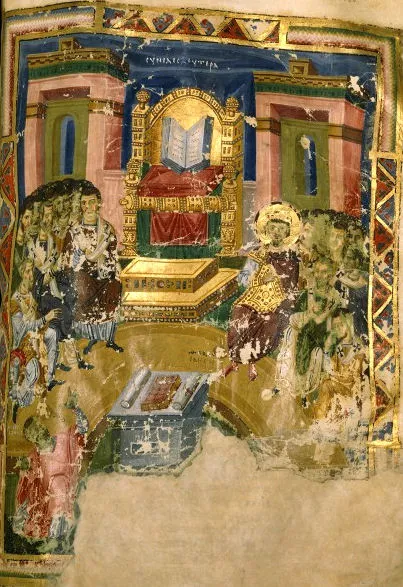
Nectarius of Constantinople: A Beacon of Faith and Leadership
Nectarius of Constantinople, revered as a pivotal figure in early Christianity, served as the Patriarch of Constantinople from 381 AD until his death in 397 AD. His tenure was marked by significant theological advancements and a steadfast commitment to the doctrines of the Christian faith.
Early Life and Background
Nectarius was born in the region of Tarsus around 260 AD. Initially, he pursued a career in public service, displaying an exceptional ability to lead and communicate. His life took a transformative turn when he decided to dedicate himself to religious pursuits, ultimately transitioning from a governmental role to that of a church leader.
The Patriarchate of Constantinople
In 381 AD, Nectarius was elected Patriarch of Constantinople, succeeding the renowned Gregory of Nazianzus. His ascent to this important position came at a time when the Orthodox Church was facing numerous challenges, including paganism, Arianism, and internal disputes among factions of the Church.
Contributions to the Church
Nectarius played a significant role in the consolidation of Orthodox Christianity during a period of intense theological debate. He was instrumental in affirming the Nicene Creed and actively opposed Arianism, a belief that questioned the divinity of Christ.
One of his notable contributions was the convening of the Second Ecumenical Council in 381 AD, which further defined and solidified the foundational beliefs of the Church. This council also addressed critical issues regarding the relationship between God the Father, God the Son, and the Holy Spirit, emphasizing the doctrine of the Trinity.
Liturgy and Worship
Nectarius also made significant strides in liturgical practices. He is associated with the establishment of specific liturgical prayers and the observance of certain feast days, reflecting his commitment to fostering a vibrant and engaged Christian community. His teachings encouraged profound spirituality among the faithful, promoting practices that were meant to unite Christians in worship.
Legacy and Canonization
Nectarius's legacy endures long after his death in 397 AD. He was canonized as a saint by the Orthodox Church, celebrated for his unwavering faith and exemplary leadership. His feast day is observed on September 22nd, commemorating his contributions to the Church and the lives he changed through his teachings.
Conclusion
Nectarius of Constantinople remains a prominent figure in Christian history, symbolizing a strong commitment to faith during a turbulent time. His leadership not only helped shape the theological groundwork of the Orthodox Church but also inspired future generations to pursue spirituality and serve their communities diligently.
Through his dedication to God and his people, Nectarius exemplified the qualities of a true shepherd, guiding the faithful with wisdom and compassion. His impact on the church is still felt today, making him a significant figure in the legacy of Christianity.






